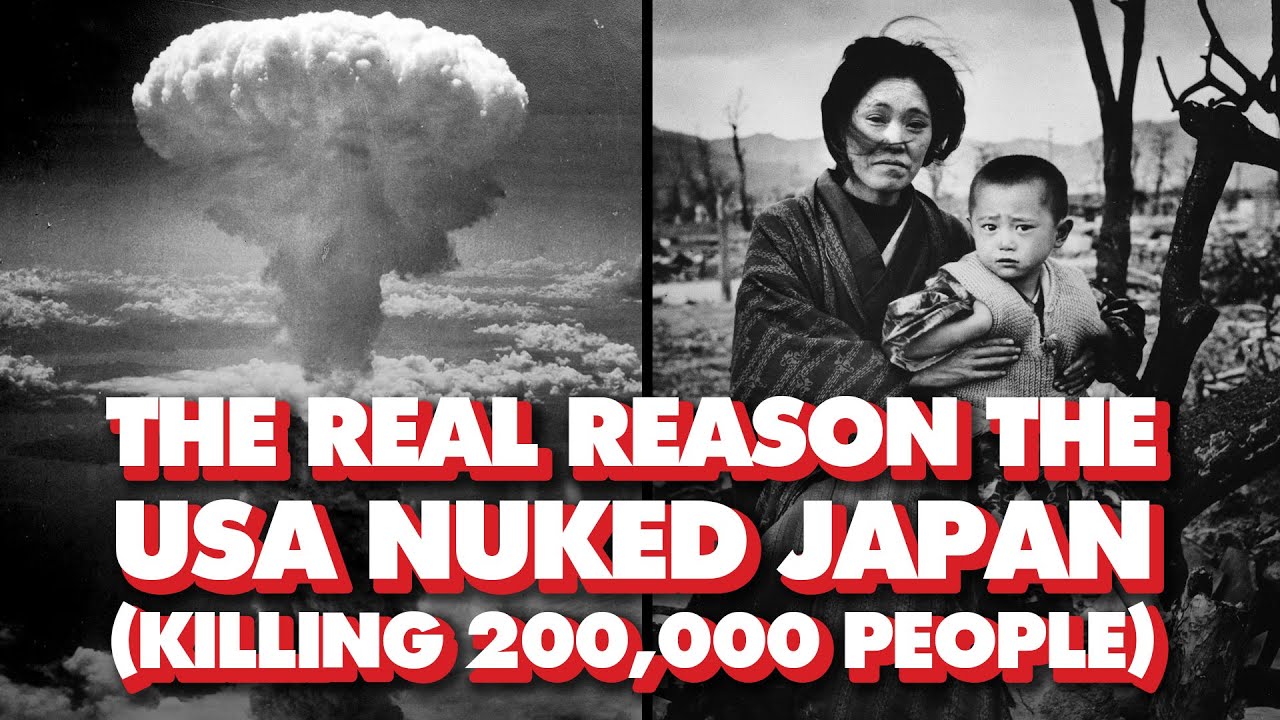‘US government documents admit that the atomic bombing of Hiroshima and Nagasaki was not necessary to end WWII. Japan was on the verge of surrendering. The nuclear attack was the first strike in Washington's Cold War on the Soviet Union. Ben Norton reviews the historical record.’



Removed by mod
But the US motivation for dropping the bombs was to intimidate the Soviets, not to just attack the Japanese. They had already firebombed most Japanese cities to the ground at that point. Their goal for Japan with the bombs was to pressure Japan into surrendering to them so they could use them as a bulwark against the Soviets.
People tend to split history of the era into like, "WW2 ends. (Free Space.) Cold War begins." But it isn't nearly so clear cut. The cold war started long before world war 2 was ever over, and the US's actions at the end of the war were just as much focused on their next conflict as they were on the current one.
if that was their goal, they could have accepted the surrender they were offered. imperial command had only one condition -- the survival of the emperor -- which they were granted anyway after the bombs were dropped. the US opted not to accept that surrender so they could use Japan as target practice.
At that time the US wasn't accepting anything less than unconditional surrender. The US changed their minds on that when the Soviets invaded.
It's messy for sure, probably one of the most eventful weeks in human history, so I'm sure there was a lot of back and forth. The pressure to surrender to the US came after they rejected Japan's first surrender offer and after the Soviet liberation of Manchuria.
my point is that the desire to drop the bomb led them to prolong the war.
Oh right, I don't disagree with you there. Turns out tiny paragraphs aren't very good at establishing the nuance of a complicated historical event. (and I probably wasn't very good at getting my point across)
yep, the fact that even brief summaries have to cover things day by day during that period are a testament to that. I have no clue how skullboi covered it in just 2 hours.
Yeah, going through this thread has reminded me to watch that video again. And his Harry Potter one. Not related to this topic, I just really like his casual destruction of TERF bullshit.
hah, I was planning to go back through it in the morning so I have all the dates lined up.
Yeah we can't be totally sure until afterwards, but the same is true for letting the peace process actually be attempted as planned. Hindsight works both ways, and given the US admitted it was doing it just to intimidate the Soviets, and the alternative was sitting around for a bit longer and negotiating till that ran dry it is clearwhat the wrong choice was
Japan was already attempting to surrender for months before the bombs were dropped.
deleted by creator
The least bad option is stopping the bombings. Japan was at a point when kamikaze attacks didn't do shit to the navy sitting on their shores. Time had been bought, oil was nonexistent. The horrors of the firebombing of Tokyo dont make the nukes justified. You can cease bombings during negotiations.
And the time before the bomb dropped was the correct time, the Soviets had entered the war against Japan, Japan's chance at negotiating through a third party was now gone and the walls where closing in. This was the plan. The Soviets stayed out until that point with the intention of the Allies being literally to use that as leverage. The door was left open on purpose
https://books.google.com/books?id=rddhxSKGQ9oC&dq=soviet+neutrality+pact+1941+denounce&pg=PA150#v=onepage&q=soviet%20neutrality%20pact%201941%20denounce&f=false
The US drops the first bomb August 6th, August 7th the USSR declares war on Japan (technically telling Japan on the 8th and with the caveat that the USSR would consider itself at war from the 9th on). So yeah I'm gonna go with prior to the Soviets entering the war as per the United States own wishes, as the ideal time for negotiations. The US had broken Japan's codes and was reading messages like this from Ambassador Sato
deleted by creator
They had no means to do anything. They had been restricted to the home islands. Also you keep saying "ad hoc" but I think you misunderstand that the navy keeps track of whether or not enemy planes sink their freaking ships. You can kinda keep track of that "hey did that plane blow you the fuck up or did it get shot down" and then get the answer. Pilots keep track of their fucking kills, that is not ad hoc information. The navy tracked the damage done by kamikaze.
They had no fucking navy, Yamato was sent out for a suicide mission and it didn't even get the chance, it got sunk almost instantly. The military couldn't do much of anything.